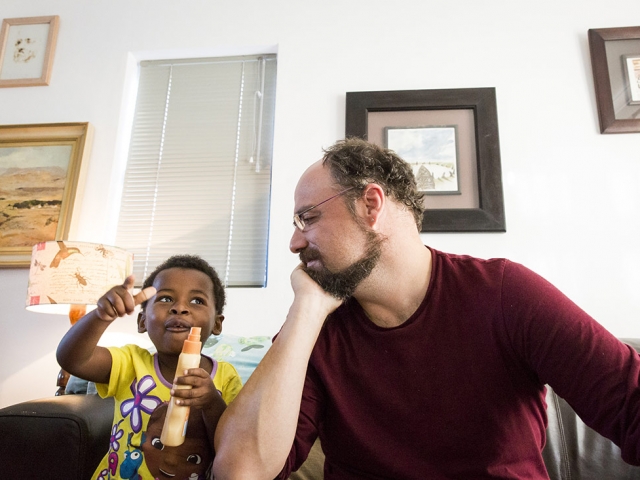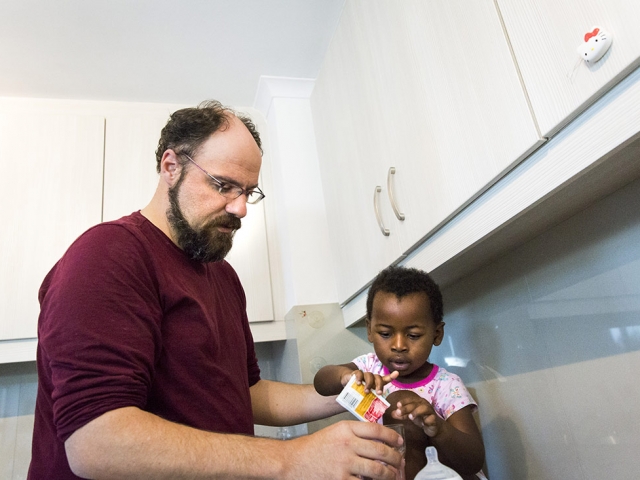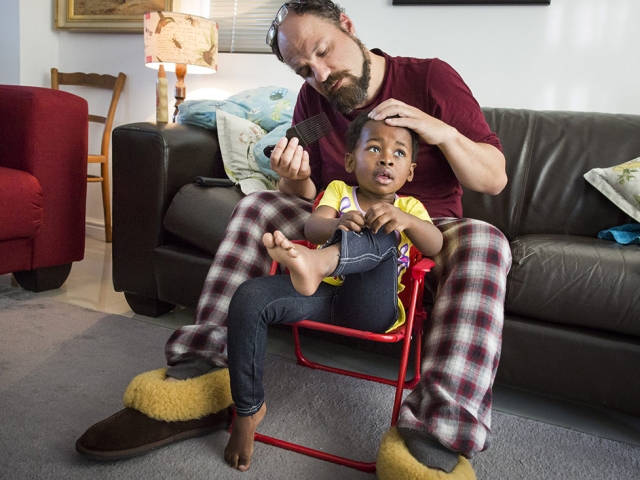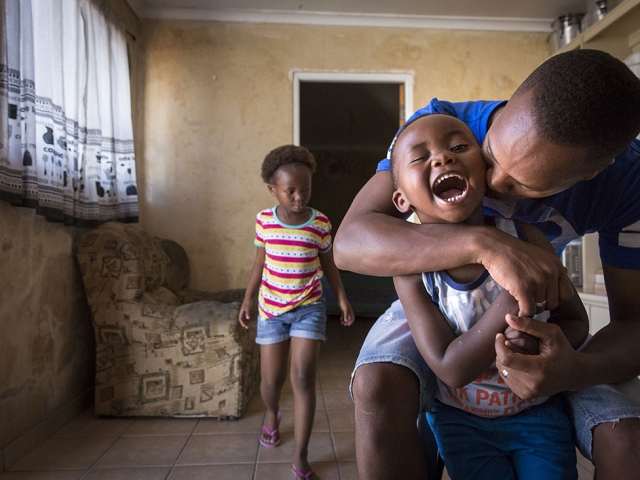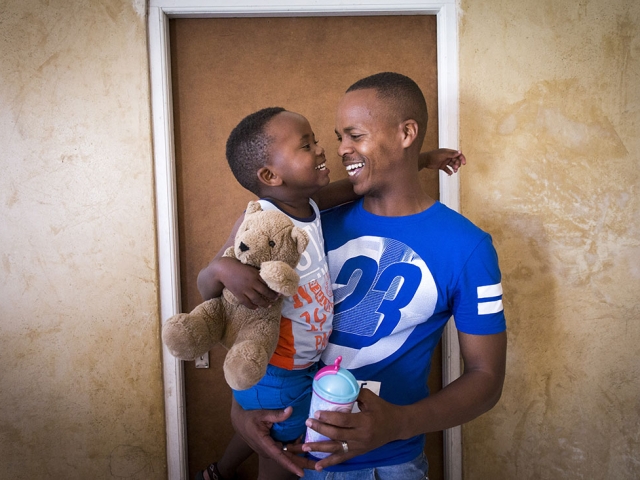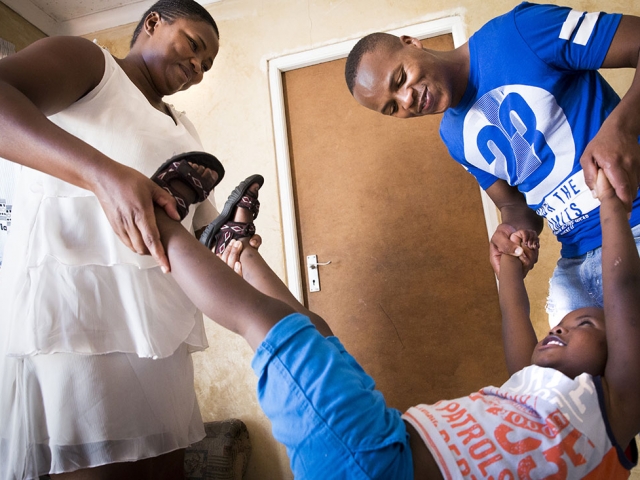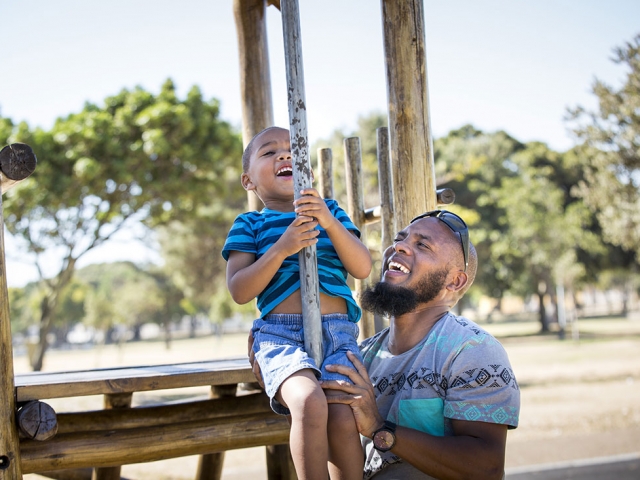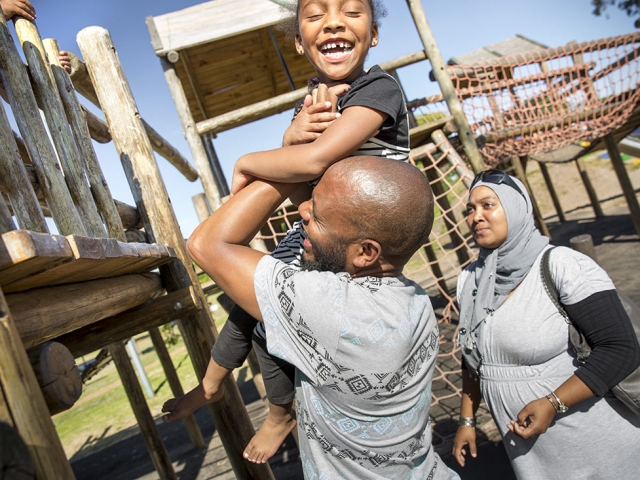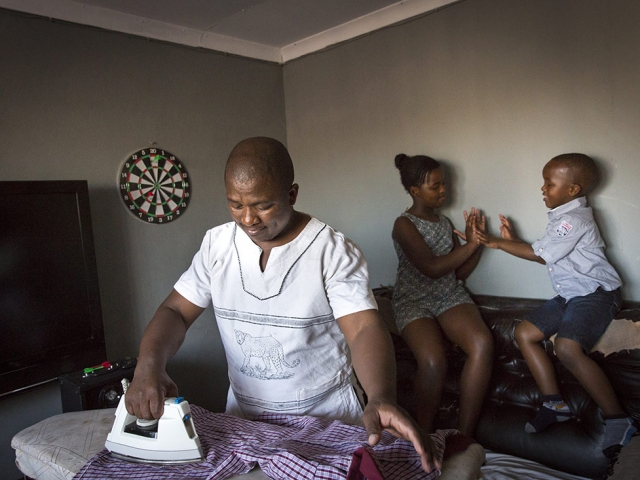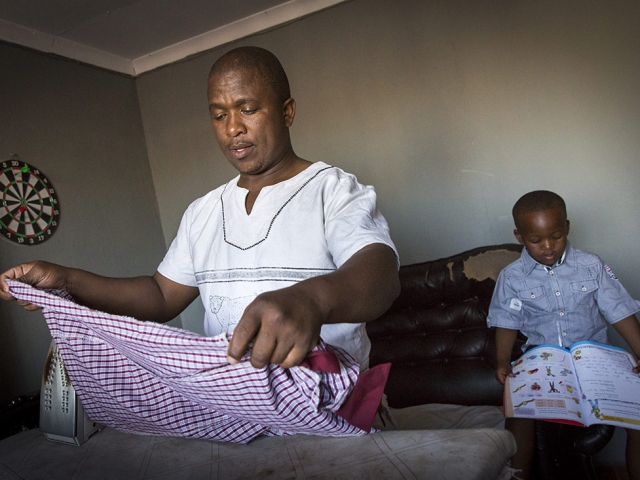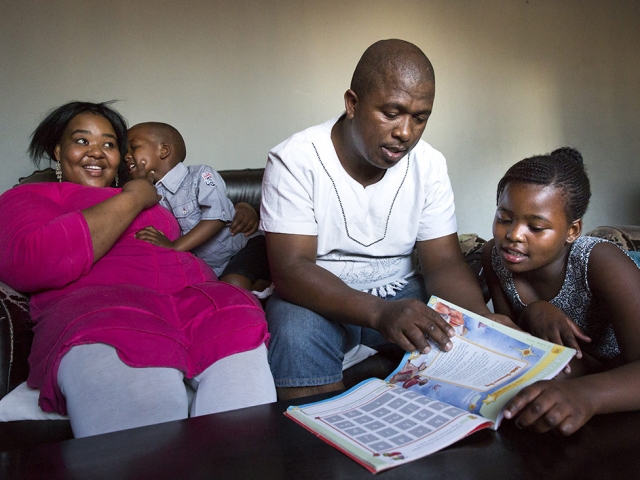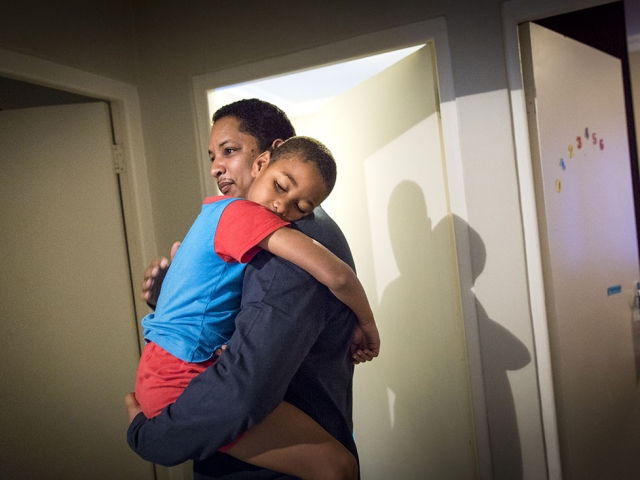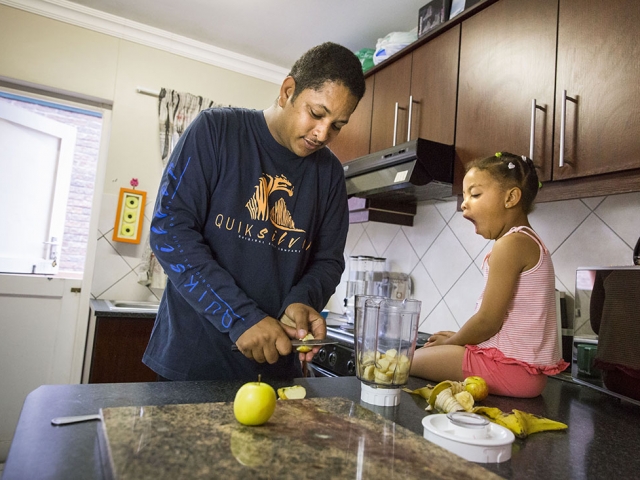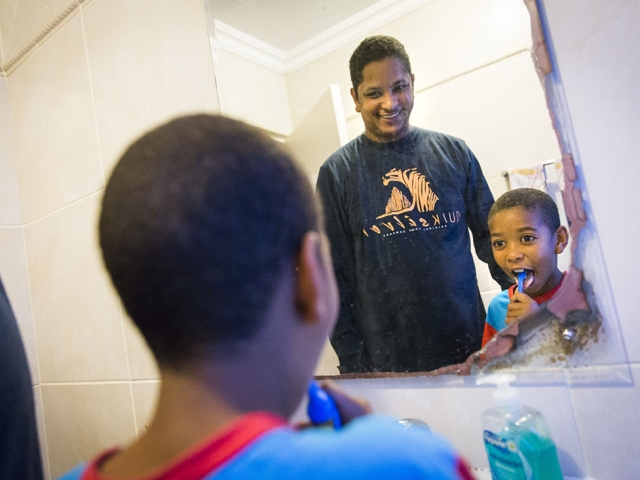In South Africa, as in most countries, social and economic policies continue to reflect and reinforce the link between fatherhood and work, and motherhood and care. Providing leave for fathers is one way to encourage men’s increased participation in caregiving as well as a more equal division of household labour between men and women. It can also help to promote gender equality.
Sonke has been advocating for paternal leave in South Africa for some time. South Africa is often viewed as a model for African development, yet we are behind our counterparts on the continent in this aspect. Kenya and Burundi for example offer 14 days, and Madagascar, Cameroon and several others offer 10 days leave for new fathers. A Labour Law Amendment Bill currently with parliament could be the first step toward more gender equal parenting leave in South Africa. It’s the first time paternity and adoptive leave is seriously being considered for our economy. Adoption leave will provide leave for same sex parents too. The proposed 10 days paternity leave, and the other proposals are likely to make it to our national assembly for approval this year or early next.
Five South African couples reveal the joys – and challenges – of parenting.
Wessel van den Berg, 41, Child Rights and Positive Parenting Portfolio Manager, Sonke Gender Justice
Renee van den Berg, 39, Music Therapist
Daisy, 3 and Jean 5 months
Lives in Somerset West, Western Cape
Renee: “We met in kindergarten in Durban. His mom was my kindergarten teacher. He was two years older so we weren’t friends. Years later we played together in an orchestra in Stellenbosch. He played french horn and I played saxophone. I thought he was really sophisticated. We became friends but he had a girlfriend and I had a boyfriend. The band went to Scotland and we went to the same bookstore. I went to take out a book of William Blake poetry and he went to the same book. There was a moment. He said: “Do you know the Gita?” I said: “the Bhagavad Gita?” I think he saw me a bit differently after that.
A few years later we met in Kalk Bay. I was on my way to South Carolina in the US to teach. But I’m glad I didn’t go. I was just too in love. That was that.”
Wessel: “Renee would do five things as a part of her day, I would do one thing – taking out the trash or washing the dishes or changing a nappy, and feel really proud of it and want applause for it. In reality, you have no idea of the care work that’s being done as a matter of course. It’s a work in progress, I’m not even close!
Sonke offers a month paternity leave so with both Daisy and Jean I took two weeks off and then every Friday for three months. Fridays are a nice time for all four of us to be together – going to the nature reserve if the weather is nice.
For me the work at Sonke happens in my spare time. I say it as a joke but it’s also true. The carework is the main bit. The paid work is what you do to support the main bit. It’s amazing to have a job that supports this.
When MenCare started at Sonke we went on a study visit to Sweden through Men for Gender Equality. We visited a kindergarten on Daddy Day – a day when just daddies come with their kids and one or two facilitators to sing songs and play games. I was crying my eyes out thinking: “I want this, I want this for my daughter. Why can’t we have this?” I think we’ll get there.
Lindela Mraqisa, 35, policeman and Sonke’s MenCare programme attendee
Nosicelo Mraqisa, 30, past volunteer for Sonke’s MenCare programme
Omgeziwe, 5 and Bukho 3
Lives in Gughulethu, Western Cape
Nosicelo: “If I’m mopping he’s washing the kids or if I’m cooking then he’ll do the dishes and if I’m doing the washing he’ll hang the clothes. So it’s way less work for me. In our communities most people believe that men should just go to friends, they drink, they have fun. They do ‘men’s stuff’. So when a man is doing cleaning, people think he’s not well, that she’s put a spell on you.”
Lindela: “There is a change. Just a little bit – here and there you see a few guys changing. Maybe carrying their kids to the clinic. I see a change.
At the MenCare workshop we learned things like how to make your relationship work. Like communication, listening, sharing stuff. If we do it together it feels less of a duty to do. Chores, washing dishes, washing the kids.
Before the workshop I was involved a little bit, but not much. I could see she had a lot to do. So I helped where I could. Then through MenCare I noticed that even though she’s not working to bring money home, she’s working more than I do. All the day she’s busy with this and that, preparing for me, for herself and I noticed she doesn’t have much time for herself. She’s the one doing the most difficult work.
I was very lucky, my father was very supportive. My mother wasn’t always very well. She was sent to some sangomas to get help and me and my sisters were raised by my father. He did everything for us. We didn’t see that it was not supposed to be done by men because he did everything. We were in the rural Eastern Cape where you wake up very early. He’d make a fire outside, cook the porridge for us then wake us up. Then he’d help me brush my teeth, bath and clothe me. School was far and he carried me on his back for 30 minutes. He’d come and fetch me as well.”
Suleiman Henry, 33, Child Rights and Positive Parenting Trainer, Sonke Gender Justice
Zulfa Henry, 31, Stay-At-Home Mom
Nafeesah, 6 and Nawaaz, 3
Lives in Manenberg, Western Cape
Zulfa: “When our first child was born Suleiman would tell me to go sleep and he would look after the child. He washed her, changed the nappies and would do the dishes. He’s very involved in housework. In most houses that’s unusual. Men think they must come home from work put their feet on the table and ask for a cup of coffee. But that is not Suleiman. He would rather ask me if I want a cup of coffee because he can see that I’m a little bit tired. Sometimes he’s tired and I know I should ask him. We balance the scales.
Since starting to work for Sonke in 2013, he’s learned more and is trying to implement it. Like positive parenting for example. He never raises his voice now to the children. He’s soft spoken and more firm.”
Suleiman: “Unfortunately, I do not remember my dad being very active in child rearing activities. He was a man’s man. Fixing things in and around the house while emphasising the importance of providing financially.
I was listening to a lecture of an Islamic scholar where he spoke about the fetus becoming a life from four months. This intrigued me and upon further exploration of the topic I learnt about the interaction that can take place between the fetus and the parents. It could have also been the fact that I lost my father at a young age that encouraged me to want to be involved in every aspect of the lives of my children.
For me, being a father is centred around three things: being supportive to my wife, who in all honesty still does most of the care work, (I am still work in progress), spending quality time with my daughter – this sets the standard of what she is to expect from other people (especially men), that she will meet in her life and being an example to my son – creating new role models for boys that portray men being supportive and respectful toward their families.
Fathers generally want to be actively involved in the lives of their children, so having a reference point also encourage them to do the same.
But it’s not just men who are changing. Many women are seeing the benefits of men being involved in care activities at home. This means that they create the supportive space in their own homes for children to have better access to their fathers.”
Sikhangele ‘SK’ Mabulu, 40, Prison’s Project Senior Trainer, Sonke Gender Justice
Nomfundo Mabulu, 35, General Worker
Panky, 8 and Nico, 5
Lives in Kraaifontein, Western Cape
Nomfundo: “Everyday SK wakes up at 5.30am. At 6am he starts washing Nico because I have to leave to get to Tygervalley where I work as a general worker. He makes Nico and Panky’s lunchbox and takes them to school. Then he comes home to do the washing and makes sure the room is ‘number 1’. When I come back from work, SK makes the food – something like chicken and pap – while I watch TV.”
SK: “My wife works hard. She arrives at work at 7am and finishes work late and is driving on the road. I can’t say she needs to cook while I’ve been sitting at a desk in the office. She’s doing the same work I’m doing at home, at work. Some people say, ‘SK, that’s not on’. When my peers come into the house they say this is not our roles as men in our culture. I love my culture. I’m Xhosa, my clan name is Mabula, we are close to royalty. But I say to them that culture is dynamic. Everything that you do should be reasonable. You can’t do something just because of culture.
I didn’t grow up with my father. He never took care of me and I hated him because of that – so it was a lesson for me. I didn’t want my children to do the same to me. When you start loving your children with your heart, you understand them more. They will open up to you, share their challenges and you’ll want to help them because you’re involved. I always want to do more for them.”
Andre Lewaks, 39 MenCare Programme Manager, Sonke Gender Justice
Sonia Lewaks, 42, Social Worker and Masters Student in Criminology
Shaundre, 8 and Andrea, 4
Lives in Vredenberg, Western Cape
He comes from a family where everything was done for him – 5 girls and 2 boys – he was the spoilt one.”
Andre: “I’m from Albertinia, a town close to Mossel Bay. When I was small the boys in the family were not allowed to work, the girls would make our beds, fix our breakfast and do all other household duties. That’s how it worked. Even in the evenings we were not allowed to clean up. That’s just how we grew up.
Sometimes my father would be violent with my mother. And he would beat my sisters up very badly. Sometimes he would throw them on the ground. He’d hit me also. Sometimes especially on Sundays when he was drunk, he’d take the food my mother was preparing and throw it in the sand and we didn’t have anything to eat. I would try to sort out the conflict by writing letters and putting them in his drawer. But he never responded to my letters or apologised.
I got involved in politics and I think that turned my life [around] because I was in the leadership of the ANC Youth League and I was thinking about my future. I was in Grade 12 when I decided to study and become a social worker.
I got my first job in Lamberts Bay and that’s were things turned with my father. I invited him to visit me. I took him for a braai [barbeque] – that’s my Saturday ritual. We were on the beach between the rocks and I lit a fire and we had a few beers and I started a conversation with him about when I was small, what he was doing and how it made me feel. The two of us started to cry. We hugged and he apologised to me. Then he was drinking much less and the family started to come together more often. On Saturdays my father would light a braai and my sisters would come over and we would have a few drinks together and just have fun and laugh. The ritual still happens here. We’ll braai, we’ll put on some music and dance together.
Sonia struggled a little bit with me. At one stage I think I was becoming like my father. Going out after work, drinking with friends, coming back very late. I started doing a lot of work with victims of domestic violence in my previous job and I think that’s when I realised, I can’t do this work and not change my life. Reflecting on my father and the destructive role he had in our family, I thought I need to help other fathers.”

